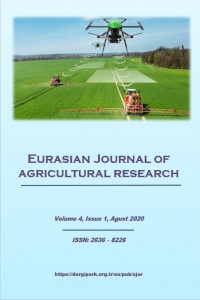Abstract
Laboratory soil analysis is one of the effective way of knowing the nutrient content of the soil. However, it is expensive and difficult to avail from the government facilities for free laboratory soil analysis. Minus one element technique (MOET) is a friendly and less expensive way of knowing the nutrient status of the soil. This study aimed to determine the nutrient status of the lowland soil in Central Luzon State University (CLSU) rice farm. Minus one element technique (MOET) was used through observation of growing rice (NSIC Rc216) variety planted in a container. The fertilizer formulations considered as the treatments included the following without nitrogen (-N), without phosphorus (-P), without potassium (-K), without sulfur (-S), without copper (-Cu), and without zinc (-Zn). Rice plants receiving complete nutrient elements served as the control. Results revealed that no visible deficiency symptoms in the growing rice except on minus nitrogen and minus sulfur treatments. This result suggested that the soil in CLSU rice farms still have sufficient nutrient elements except on nitrogen and sulfur. Plants in minus N element showed yellowing of the leaves starting at the older leaves and moves along to the middle leaves two weeks after planting. This treatment show less number of tillers and foliage as compared to the treatment receiving complete nutrients. Plants in minus sulfur appears a pale green to pale yellow leaves starting in the younger leaves. Thus, soil in CLSU rice farm needs Nitrogen and Sulfur nutrient elements and need to be addressed.
Keywords
Deficiency symptoms minus one element technique (MOET) nutrient elements and productive soil
Supporting Institution
Visayas State University
Project Number
no project number
References
- Castillo, Michelle B. and Mamaril, Cezar, 2018. MINUS-ONE ELEMENT TECHNIQUE (MOET): DIAGNOSTIC TOOL TO ASSESS MULTI-NUTRIENT DEFICIENCIES IN LOWLAND RICE SOILS Philippine Rice Research Institute, Los Banos, Phils.
- Dobermann, A. and T. Fairhurst. 2000. Rice Nutrient Disorders and Nutrient management. International Rice Research Institute (IRRI) p 191.
- Food & Fertilizer Technology Center. Copyright © 1998-2008 FFTC. All rights reserved. Email: info@fftc.agnet.org 5F.14 Wenchow St., Taipei 10616 Taiwan R.O.C. Tel: (886-2) 2362-6239 Fax: (886-2) 2362-0478
- Kirkby, E. A. and Bergmann, W. (Ed.) 1992: Nutritional Disorders of Plants. Journal of plant Nutrition and Soil Science
- Marschner, H. 1986. Mineral Nutrition of Higher Plants 4th ed. Academic Press Inc., San Diego. p 674
- Oteng, J.W. and R. Santanna, 2019. Rice production in Africa: current situation and issues. International Rice Commission Newsletter Vol. 48.
- Rescalsota, J. P., Mamaril, C. P., Peralta, M. T. B., Olvida, I. D. G. and Cruz, R. T. 2005. Philippine Rice Research Inst. Los Baños, College, Laguna, Philippines. Phil Journal of Crop Science.
- Sanchez, P.A., Shepherd, K.D., Soule, M.J., Place, F.M., Mokwunye, A.U., Buresh, R.J., Kwesiga, F.R., Izac, A.N., Ndiritu, C.G. and P.L. Woomer. 1997. Soil fertility replenishment in Africa: An investment in natural resource capital. In: Replenishing soil fertility in Africa. Buresh RJ, Sanchez PA (Eds.). (Spec. Publ. No. 51, Soil Science Society of America, Madison, WI, pp 146.
- http://ricecongress.com/previous/pdflink/4397.pdf retrieved March 14, 2013
Abstract
Project Number
no project number
References
- Castillo, Michelle B. and Mamaril, Cezar, 2018. MINUS-ONE ELEMENT TECHNIQUE (MOET): DIAGNOSTIC TOOL TO ASSESS MULTI-NUTRIENT DEFICIENCIES IN LOWLAND RICE SOILS Philippine Rice Research Institute, Los Banos, Phils.
- Dobermann, A. and T. Fairhurst. 2000. Rice Nutrient Disorders and Nutrient management. International Rice Research Institute (IRRI) p 191.
- Food & Fertilizer Technology Center. Copyright © 1998-2008 FFTC. All rights reserved. Email: info@fftc.agnet.org 5F.14 Wenchow St., Taipei 10616 Taiwan R.O.C. Tel: (886-2) 2362-6239 Fax: (886-2) 2362-0478
- Kirkby, E. A. and Bergmann, W. (Ed.) 1992: Nutritional Disorders of Plants. Journal of plant Nutrition and Soil Science
- Marschner, H. 1986. Mineral Nutrition of Higher Plants 4th ed. Academic Press Inc., San Diego. p 674
- Oteng, J.W. and R. Santanna, 2019. Rice production in Africa: current situation and issues. International Rice Commission Newsletter Vol. 48.
- Rescalsota, J. P., Mamaril, C. P., Peralta, M. T. B., Olvida, I. D. G. and Cruz, R. T. 2005. Philippine Rice Research Inst. Los Baños, College, Laguna, Philippines. Phil Journal of Crop Science.
- Sanchez, P.A., Shepherd, K.D., Soule, M.J., Place, F.M., Mokwunye, A.U., Buresh, R.J., Kwesiga, F.R., Izac, A.N., Ndiritu, C.G. and P.L. Woomer. 1997. Soil fertility replenishment in Africa: An investment in natural resource capital. In: Replenishing soil fertility in Africa. Buresh RJ, Sanchez PA (Eds.). (Spec. Publ. No. 51, Soil Science Society of America, Madison, WI, pp 146.
- http://ricecongress.com/previous/pdflink/4397.pdf retrieved March 14, 2013
Details
| Primary Language | English |
|---|---|
| Subjects | Agricultural Engineering |
| Journal Section | Articles |
| Authors | |
| Project Number | no project number |
| Publication Date | August 30, 2020 |
| Published in Issue | Year 2020 Volume: 4 Issue: 1 |


